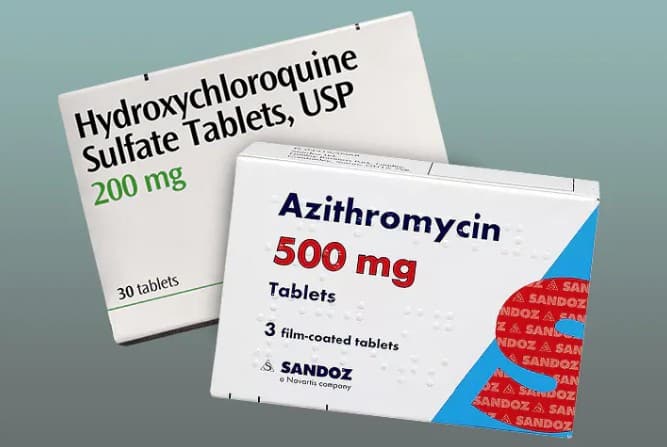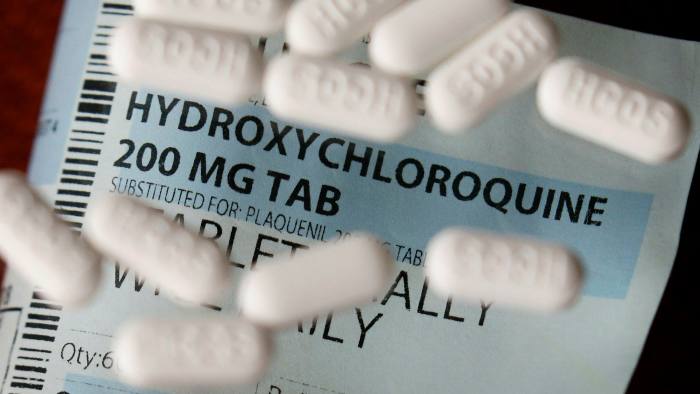Risks of Hydroxychloroquine: In the ongoing debates on the coronavirus epidemic, a question often arises what is the medicine for this disease, what is its treatment.
Hydroxychloroquine is also one of the drugs with which the possibility of treatment for COVID-19 is being explored. In addition to malaria, this drug is used in the treatment of lupus (a type of skin disease) and arthritis. The name hydroxychloroquine comes from the chloroquine compound (chemical mixture) used to make it.
Both hydroxychloroquine and chloroquine have a different chemical composition and medical use. Although various applications are being made about the usefulness of hydroxychloroquine in COVID-19 disease and some research has also been done in this direction.
But on April 6, the Pan-American Health Organization (Pahoe) warned that there is no concrete evidence has yet come out to substantiate the claims about hydroxychloroquine. Until any concrete evidence is found, Pahoe has appealed to the US government to refrain from using it.
The institution stated, “The use of chloroquine or hydroxychloroquine without following current guidelines and procedures can have adverse effects. This can make a person seriously ill and even cause death.”
Risks of Hydroxychloroquine

Hydroxychloroquine Side Effects Putting aside the ‘Pahoe’ warning about hydroxychloroquine, US President Donald Trump has given clear indications on several occasions that COVID-19, is a disease caused by the coronavirus, can be treated with this drug.
According to the US National Library of Medicine, patients who use hydroxychloroquine to treat other diseases include headaches, dizziness, loss of appetite, stomach upset, diarrhea, abdominal pain, and vomiting, on the skin. Complaints of hives have been seen.
Malaria patients can avoid its side effects by using this medicine along with food. However, some experts warn about its other effects, which can prove to be fatal.
Heart disease risk The Mayo Clinic of the United States issued a statement on March 25 warning that the anti-malarial drugs hydroxychloroquine and chloroquine, as well as HIV-treated drugs lopinavir and ritonavir, are at risk of heart disease and cause a sudden heart attack to the patient.
The Mayo Clinic states, “Drugs like hydroxychloroquine can block a particular potassium channel at the cell level that controls the electrical recharge system of the human heart. Any disturbances in this process cause abnormal heartbeats, and the patient may have a sudden attack. “
The Mayo Clinic recommends that patients who are being given these medications be regularly given an electrocardiogram (ECG). The report of Paho, released on April 6, also mentions the effect of using hydroxychloroquine in the treatment of heart disease in other patients.

COVID-19 patients Cardiologist Emile Ferrari of Center Hospital University, located in Nice, France, told the Nees-Matin newspaper on April seven, “We have to stop a test of hydroxychloroquine and azithromycin (a compound that is often given) on a patient infected with the coronavirus.” Had to give. After giving both medicines, this patient had some heart problems. “
Heart trouble was minimal when given only hydroxychloroquine. However, the condition worsened when a COVID-19 patient was given azithromycin with hydroxychloroquine.
The risk of heart attack increased. If any drug reduces the amount of potassium in a person’s blood and reduces the flow of oxygen in the blood, it will be its side effect. “
Doctor Emil Ferrari says, “If these medicines are given, then the patient’s heart should be monitored through an electrocardiogram.”
Cause for trouble The French National Agency for Safety of Medicines (ANSM) issued a statement on April 10 warning about the undesirable effects of hydroxychloroquine. Apart from this, the agency had also said about medicines like Lopinavir and Ritonavir could be a problem for some patients.

“Out of a hundred patients monitored after March 27, we found in 53 cases that it had a negative effect on a person’s heart. Of these, 43 patients were given only hydroxychloroquine or azithromycin,” ANSM said.
The agency reported, “Four people who died were seen to have many more symptoms besides abnormal heart rate. So, preliminary investigation suggests that such treatment is associated with many risks, especially the risk of heart disease,” and this increases in COVID-19 patients. “
What does the research say? The World Health Organization has not approved the use of hydroxychloroquine or chloroquine in the treatment of people infected with the coronavirus. But the WHO announced on April 8 that it will start an international clinical trial of hydroxychloroquine, chloroquine, and other drugs to treat COVID-19.
On March 28, the US Department of Food and Drug Administration also allowed the use of hydroxychloroquine and chloroquine on COVID-19 patients in emergency situations. On April 7, the American body CDC said that clinical trials of these drugs are being done in the treatment of Kovid-19.
The Mayo Clinic also agrees that in laboratory tests, hydroxychloroquine has been successful in preventing SARS-CoV and SARS-CoV-2 (viruses responsible for COVID-19) illnesses from entering cells.







Add Comment